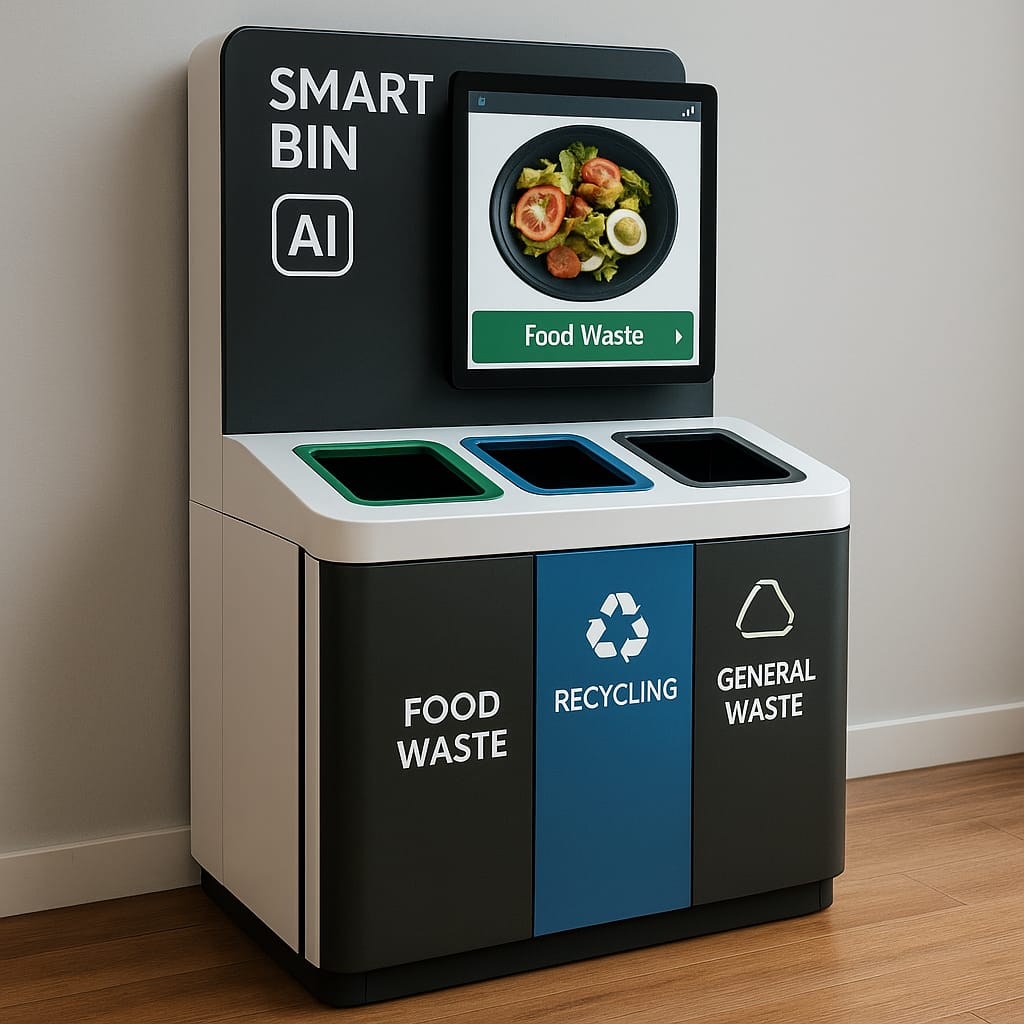
As of 31 March 2025, the UK has introduced groundbreaking food waste separation legislation, setting a new standard for sustainability in the food and beverage industry.
This law mandates businesses to adopt stricter waste management practices, emphasising the separation of food scraps from general waste. While the legislation brings its challenges, it also presents exciting opportunities for businesses to lead in sustainable operations.
What does the legislation require?
The legislation outlines clear steps that businesses must follow to comply. Firstly, food scraps must be separated from general waste, ensuring they can be effectively recycled or composted.
Secondly, organic waste, including compostable items like biodegradable packaging, coffee grounds and plant-based cutlery, must be disposed of through designated recycling or composting channels to reduce landfill contributions.
Businesses are required to provide staff training to ensure compliance, equipping employees with the knowledge to implement these changes effectively.
A step towards sustainability
The introduction of this legislation marks a significant shift in the way the food and beverage industry handles waste. Food waste is a major contributor to greenhouse gas emissions, approximately 8-10%, and improper disposal exacerbates environmental issues.
By enforcing the separation and proper disposal of organic waste, the legislation helps reduce carbon emissions, enhance recycling rates, and encourage sustainable practices across the sector.
Challenges of compliance
While the benefits are clear, the road to compliance is not without hurdles. Many establishments will need to invest in new waste management systems and bins to meet the separation requirements.
Training staff on the new regulations requires both time and financial investment, particularly for larger businesses with high staff turnover. For those operating across multiple locations or managing high volumes of waste, implementing consistent practices will be a logistical challenge. Additionally, ensuring waste collection providers are equipped to manage separated food waste adds further complexity to the process.
Opportunities for innovation
Despite these challenges, the legislation opens doors for innovation and growth. Forward-thinking businesses are turning compliance into a competitive advantage. Technology such as smart bins that track waste levels and provide data insights. For example, major hospitality chains such as the Mariott and Hilton Hotels utilise ai-powered cameras and scales allowing chefs to make decisions about inventory and portion sizes, leading to significant reductions in waste and cost savings.
Adopting visible, sustainable practices enhances brand reputation, appealing to environmentally conscious consumers. Collaborating with specialised recycling firms and exploring circular economy initiatives, such as repurposing food waste into biofuels or fertilisers, are also emerging trends.
From March 2025, Sainsbury’s are using the food waste to create biofuel for 30 heavy goods vehicles (HGVs) at its Bristol distribution centre. This waste, which can’t be donated or used for animals, is processed into biogas and then refined into fuel. The project, covering half the site’s fleet, will cut over 3,000 tonnes of CO₂ emissions annually equal to the energy use of nearly 2,000 homes.
Industry response
The response from the industry has been mixed but largely proactive. Many businesses recognise the long-term benefits of compliance and are taking steps to adapt.
Food manufacturers and retailers are working to minimise waste across production and distribution while ensuring the proper disposal of unavoidable waste. For example, Tesco has recently initiated a trial in select Express stores, where unsold food items nearing their expiration are offered to customers for free after 9:30 PM. This initiative is part of Tesco’s broader strategy to halve food waste across its operations by 2025 and within its supply chains by 2030.
Looking ahead, the legislation is likely to drive further innovation and collaboration across the industry. Increased government support in the form of funding and resources may emerge to assist businesses with compliance. Growing public awareness of sustainability will continue to drive consumer demand for environmentally responsible businesses.
For businesses in the food and beverage industry, now is the time to act. Evaluate your current waste management practices, invest in the necessary infrastructure, and educate your team on the new regulations. Doing so not only ensures compliance but also strengthens your reputation as a sustainability leader.
Let us know what you think of this development in food waste for the industry by dropping us a message via Instagram